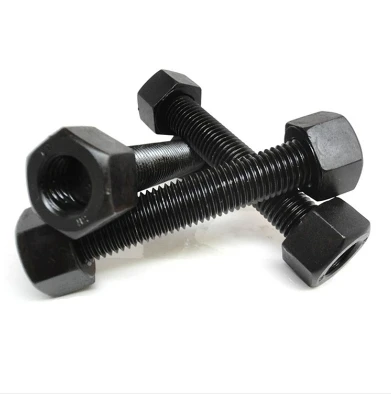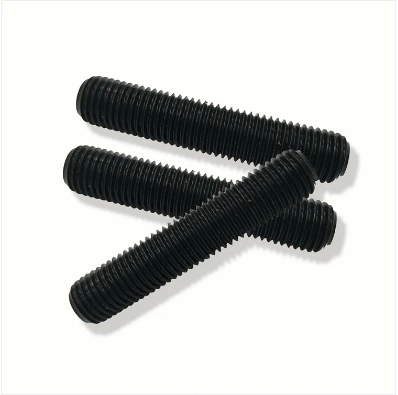stud bolt
gen. . 09, 2025 13:48 Back to list
stud bolt
Stud bolts, a crucial element in the realm of fastening solutions, serve as indispensable components in various industrial applications, particularly in scenarios where strength, reliability, and precision are paramount. As an experienced professional in the field, I’ve witnessed firsthand the transformative impact that high-quality stud bolts can have on project outcomes. With a profound understanding of their material properties, applications, and maintenance, we can elevate both the effectiveness and longevity of the systems they support.
Regular inspections and maintenance form the backbone of stud bolt performance over time. Corrosion, often the nemesis of any fastener, can be mitigated through protective coatings such as galvanization or PTFE, which provide an additional defensive layer against environmental aggressors. Periodic checks for signs of wear or corrosion, especially in high-stress environments, play a pivotal role in preempting potential failures. Trust in stud bolt performance is not merely about material and manufacture; it's about installation and maintenance practices too. Utilising a certified installation team ensures that each step of the application process enforces the bolt’s function. Furthermore, continuous training of personnel on the latest techniques and technological advancements fosters an environment where expertise is constantly enhanced. From academia to industry, publications and guidelines reflect the criticality of this hardware. ASME’s guidelines on pressure vessel design, for instance, underscore the importance of fastener integrity in ensuring system safety and efficiency. Leveraging authoritative resources when planning and executing installation projects leverages this wealth of collective knowledge. In summation, while stud bolts may appear as humble components in the larger mechanics of industrial projects, their significance is far-reaching. Implementing a strategy that encompasses the selection, precise installation, regular maintenance, and proper training ensures these components contribute effectively to the broader infrastructure. Hence, approaching stud bolts with an understanding of their nuanced demands sets the foundation for industrial successes, reinforcing the bridge between mere components and monumental achievements.


Regular inspections and maintenance form the backbone of stud bolt performance over time. Corrosion, often the nemesis of any fastener, can be mitigated through protective coatings such as galvanization or PTFE, which provide an additional defensive layer against environmental aggressors. Periodic checks for signs of wear or corrosion, especially in high-stress environments, play a pivotal role in preempting potential failures. Trust in stud bolt performance is not merely about material and manufacture; it's about installation and maintenance practices too. Utilising a certified installation team ensures that each step of the application process enforces the bolt’s function. Furthermore, continuous training of personnel on the latest techniques and technological advancements fosters an environment where expertise is constantly enhanced. From academia to industry, publications and guidelines reflect the criticality of this hardware. ASME’s guidelines on pressure vessel design, for instance, underscore the importance of fastener integrity in ensuring system safety and efficiency. Leveraging authoritative resources when planning and executing installation projects leverages this wealth of collective knowledge. In summation, while stud bolts may appear as humble components in the larger mechanics of industrial projects, their significance is far-reaching. Implementing a strategy that encompasses the selection, precise installation, regular maintenance, and proper training ensures these components contribute effectively to the broader infrastructure. Hence, approaching stud bolts with an understanding of their nuanced demands sets the foundation for industrial successes, reinforcing the bridge between mere components and monumental achievements.
Next:
Latest news
-
High-Quality Bolts for Lawn Mower Handle Supplier & Manufacturer
NewsAug.21,2025
-
Reliable Axle Nuts Supplier | High-Quality Automotive Parts
NewsAug.19,2025
-
Premium Wire Bolts Suppliers | Durable & Reliable Fasteners
NewsAug.18,2025
-
Leading Metric Wood Screw Companies & Manufacturers
NewsAug.17,2025
-
Top Wire Bolts Suppliers - Quality & Durable Fasteners
NewsAug.15,2025
-
Trusted Wire Bolts Company | Quality Fasteners Supplier
NewsAug.14,2025
